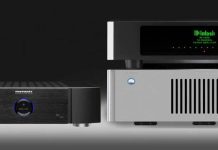Mercaptans are gases that have an extremely strong, eggy smell, which also has an offensive odour. They’re found in crude oil and certain other hydrocarbons and can be removed from various liquid petroleum products using a chemical process called “catalytic hydrotreating.” There are lots of ways to get mercaptan gas out of your place—so find out which one is best for you!athe thiol group. Mercaptans have a strong, unpleasant smell, often described as “rotten eggs.” Hydrogen sulfide (H2S) is a colorless, poisonous gas with a foul odor. It is produced when mercaptans decompose.
Mercaptans and hydrogen sulfide are both byproducts of the petroleum industry. They can be found in crude oil, natural gas, and sulfur-containing minerals. Mercaptans are added to natural gas and propane to give them their distinctive odor so that leaks can be detected. Hydrogen sulfide is produced when mercaptans decompose.
Hydrogen sulfide is toxic and can be lethal at high concentrations. It has been linked to cancer and other health problems. The Occupational Safety and Health Administration (OSHA) has set strict limits for exposure to hydrogen sulfide.
If you suspect that you have mercaptans or hydrogen sulfide in your water supply, you should contact your local water utility or a qualified water treatment professional. There are a variety of treatment options available for mercaptan gas detector and to remove these contaminants from your water.
Mercaptan and hydrogen sulphide smells caused by what sources?
Mercaptans and hydrogen sulfide smells are caused by a variety of sources, including sewage, animal waste, and decaying organic matter. These substances release sulfur compounds into the air, which can then be detected by the human nose. In some cases, mercaptans and hydrogen sulfide smells can also be caused by industrial activity, such as oil refineries and paper mills.
Sewage is one of the most common sources of mercaptan and hydrogen sulfide smells. When sewage decomposes, it produces a variety of sulfur compounds that are released into the air. These compounds can be detected by the human nose at extremely low concentrations.
Animal waste is another major source of mercaptan and hydrogen sulfide smells. Animal feces and urine contain high levels of sulfur-containing compounds, which are released into the air when they decompose. Like sewage, animal waste can produce strong odors at very low concentrations.
Decaying organic matter is also a source of these foul-smelling compounds. When leaves, grass, or other plant material decomposes, it releases sulfur compounds into the air. These compounds can be carried long distances by wind before they eventually settle to the ground or are diluted to undetectable levels.
While all of these sources contribute to the problem of mercaptan and hydrogen sulfide smells, industrial activity is often responsible for the strongest and most persistent odors.
Ways to prevent mercaptans from happening in the first place
There are a few key ways that you can prevent mercaptans from happening in the first place:
1. Make sure that your sulfur levels are low. This can be done by using a water filter or reverse osmosis system.
2. If you have sulfate in your water, make sure to treat it before using it for drinking or cooking. This can be done with a simple ion exchange system.
3. Mercaptans are often produced when organic matter decomposes, so make sure to keep your drains clean and free of any build-up.
How to get rid of the smell and health effects associated with them.
When it comes to hydrogen sulfide and mercaptans, the best way to get rid of their smell and health effects is to ventilate your home. Open all the doors and windows in your house to let fresh air in. If you have an exhaust fan, turn it on to help remove any lingering fumes. You may also want to consider using an air purifier with a HEPA filter to help remove these gases from the air inside your home.
If you’re concerned about the health effects of hydrogen sulfide or mercaptans, talk to your doctor. They can provide you with more information and resources about how to protect yourself and your family from these gases.
Cons: sources, and how to prevent them
There are a few different sources of mercaptans and hydrogen sulfide, and each has its own prevention method.
The first source is sewage. Sewage can contain high levels of mercaptans and hydrogen sulfide due to the breakdown of organic matter. To prevent these gases from entering your home, make sure that your plumbing is in good working order and that all sewage lines are properly vented.
Another source of these gases is animal waste. Manure from livestock and pets can contain high levels of mercaptans and hydrogen sulfide. To prevent these gases from entering your home, keep animal waste away from your house and ventilate any areas where it is stored.
Finally, decomposing vegetation can also release these gases into the air. To prevent this, regularly remove dead leaves and other vegetation from your yard, and compost them instead of allowing them to decompose in place.































